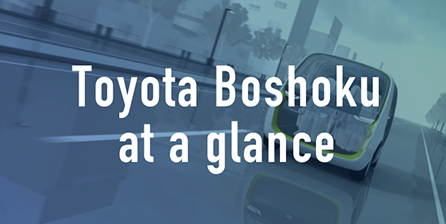Environmental Data by categories
Amount of GHG emission (Scope 1 and 2)
Toyota Boshoku group
![Graph:Amount of CO2 emission [Toyota Boshoku group]](/_assets/img/sustainability/environment/data/category/img1_01@global.svg)
- Since fiscal 2023 calculations have made use of data for the so-called “6.5 gases” (i.e. greenhouse gases other than CO2 emissions from energy use), as well as CO2 emissions from fuel used by Toyota Boshoku Group vehicles.
- Data for fiscal 2023 shows a substantial decrease in GHG emissions compared to the preceding fiscal year. This is partly due to increased adoption of renewable energy, and partly a result of changes to international emissions coefficients. (Until fiscal 2022 we made use of various nations coefficients from the year 2000, which were published by the IEA in 2013. However, in fiscal 2023 we began making use of coefficients from 2020, which were published by the IEA in 2022.)
- Calculated including results for member welfare facilities, etc.
Toyota Boshoku
![Graph:Amount of CO2 emission [Toyota Boshoku]](/_assets/img/sustainability/environment/data/category/img1_02@global.svg)
- Since fiscal 2023 calculations have made use of data for the so-called “6.5 gases” (i.e. greenhouse gases other than CO2 emissions from energy use), as well as CO2 emissions from fuel used by Toyota Boshoku vehicles.
- Data for fiscal 2023 shows a substantial decrease in GHG emissions compared to the preceding fiscal year. This is due to increased adoption of renewable energy.
Japan region (excluding Toyota Boshoku)
![Graph:Amount of CO2 emission [Japan region (excluding Toyota Boshoku)]](/_assets/img/sustainability/environment/data/category/img1_03@global.svg)
- Note: Emissions increased from fiscal 2024 due to the addition of Toyota Boshoku Hirose Corporation and Toyota Boshoku Seiko Corporation
The Americas region
![Graph:Amount of CO2 emission [The Americas region]](/_assets/img/sustainability/environment/data/category/img1_04@global.svg)
Asia region
![Graph:Amount of CO2 emission [Asia region]](/_assets/img/sustainability/environment/data/category/img1_05@global.svg)
China region
![Graph:Amount of CO2 emission [China region]](/_assets/img/sustainability/environment/data/category/img1_06@global.svg)
Europe & Africa region
![Graph:Amount of CO2 emission [Europe & Africa region]](/_assets/img/sustainability/environment/data/category/img1_07@global.svg)
GHG emissions data that has been assured by an independent assurance provider is marked with this assurance symbol (click here for details).
Amount of waste
Toyota Boshoku group
![Graph:Amount of waste [Toyota Boshoku group]](/_assets/img/sustainability/environment/data/category/img2_01@global.svg)
- Waste at cost: Materials discarded that are recycled for a fee
- Does not include the amount of construction waste generated by subsidiaries in the construction industry
Toyota Boshoku
![Graph:Amount of waste [Toyota Boshoku]](/_assets/img/sustainability/environment/data/category/img2_02@global.svg)
Japan region (excluding Toyota Boshoku)
![Graph:Amount of waste [Japan region (excluding Toyota Boshoku)]](/_assets/img/sustainability/environment/data/category/img2_03@global.svg)
- Does not include the amount of construction waste generated by subsidiaries in the construction industry
- Emissions increased from fiscal 2024 due to the addition of Toyota Boshoku Hirose Corporation and Toyota Boshoku Seiko Corporation
The Americas region
![Graph:Amount of waste [The Americas region]](/_assets/img/sustainability/environment/data/category/img2_04@global.svg)
Asia region
![Graph:Amount of waste [Asia region]](/_assets/img/sustainability/environment/data/category/img2_05@global.svg)
China region
![Graph:Amount of waste [China region]](/_assets/img/sustainability/environment/data/category/img2_06@global.svg)
Europe & Africa region
![Graph:Amount of waste [Europe & Africa region]](/_assets/img/sustainability/environment/data/category/img2_07@global.svg)
waste data that has been assured by an independent assurance provider is marked with this assurance symbol (click here for details).
Water consumption
Toyota Boshoku group
![Graph:Water consumption [Toyota Boshoku group]](/_assets/img/sustainability/environment/data/category/img3_01@global.svg)
Toyota Boshoku
![Graph:Water consumption [Toyota Boshoku]](/_assets/img/sustainability/environment/data/category/img3_02@global.svg)
Japan region (excluding Toyota Boshoku)
![Graph:Water consumption [Japan region (excluding Toyota Boshoku)]](/_assets/img/sustainability/environment/data/category/img3_03@global.svg)
- Note: Emissions increased from fiscal 2024 due to the addition of Toyota Boshoku Hirose Corporation and Toyota Boshoku Seiko Corporation
The Americas region
![Graph:Water consumption [The Americas region]](/_assets/img/sustainability/environment/data/category/img3_04@global.svg)
Asia region
![Graph:Water consumption [Asia region]](/_assets/img/sustainability/environment/data/category/img3_05@global.svg)
China region
![Graph:Water consumption [China region]](/_assets/img/sustainability/environment/data/category/img3_06@global.svg)
Europe & Africa region
![Graph:Water consumption [Europe & Africa region]](/_assets/img/sustainability/environment/data/category/img3_07@global.svg)
Water consumption data that has been assured by an independent assurance provider is marked with this assurance symbol (click here for details).
Emission of chemical substances
Toyota Boshoku Pollutant Release and Transfer Register (PRTR) substances emissions
![Graph:Emission of chemical substances [Toyota Boshoku PRTR substances emissions]](/_assets/img/sustainability/environment/data/category/img4_01@global.svg)
PRTR substances emissions in the Japan region (excluding Toyota Boshoku)

Toyota Boshoku Volatile Organic Compounds (VOC) emissions
![Graph:Emission of chemical substances [Toyota Boshoku VOC emissions]](/_assets/img/sustainability/environment/data/category/img4_02@global.svg)
VOC emissions in the Japan region (excluding Toyota Boshoku)

Emission of air pollutants
Toyota Boshoku
![Graph:Emission of air pollutants [Toyota Boshoku]](/_assets/img/sustainability/environment/data/category/img5_01@global.svg)
- SOx emissions less than 0.05 t have been classified as "0."
[Criteria for calculation]
・GHG Emission Levels
CO2 conversion coefficients for electric power in Japan are calculated with reference to emissions coefficients from each domestic electric utility company (based on emissions survey results), and included in Electric Utility Companys’ Emissions Coefficients (for use in calculating greenhouse gas emissions of companies emitting above a certain set level)—Results from Fiscal 2023, published by Japan’s Ministry of the Environment, whereas for electric power in other regions they are calculated with reference to the IEA’s Emissions Factors 2023.
CO2 conversion coefficients for gas and other fuels are calculated with reference to A Summary of Calculation Methods and Emission Intensities for Systems of Calculating, Reporting and Publishing Environmental Data published by Japan’s Ministry of the Environment.
・Water consumption
The aggregated total of water used by our various business entities, including industrial water, groundwater, and water from the public water supply.
・Waste generation
The total amount of waste that leaves our various business entities, including landfill waste, incinerated waste, and materials discarded that are recycled for a fee.
[Boundary of reporting]
- Toyota Boshoku: Global Mainstay Hub, plants and offices in Japan (14 plants)
- Japan affiliates: Production entities (10 companies), others (5 companies)
- The Americas region: Regional Management & Collaboration Hub (1 company), production sites (11 companies)
- China region: Regional Management & Collaboration Hub (1 company), production sites (14 companies)
- Asia region: Regional Management & Collaboration Hub (1 company), production sites (15 companies)
- Europe & Africa region: Regional Management & Collaboration Hub (1 company), production sites (7 companies)
- Note: Data for Toyota Boshoku Hirose Corporation, Toyota Boshoku Seiko Corporation, Seat Metal Parts (Thailand) Co., Ltd., Seat Metal Parts China Co., Ltd., PT. Shiroki Indonesia, and Toyota Boshoku Device India Private Limited. have been included in aggregated results from the middle of fiscal 2024.





